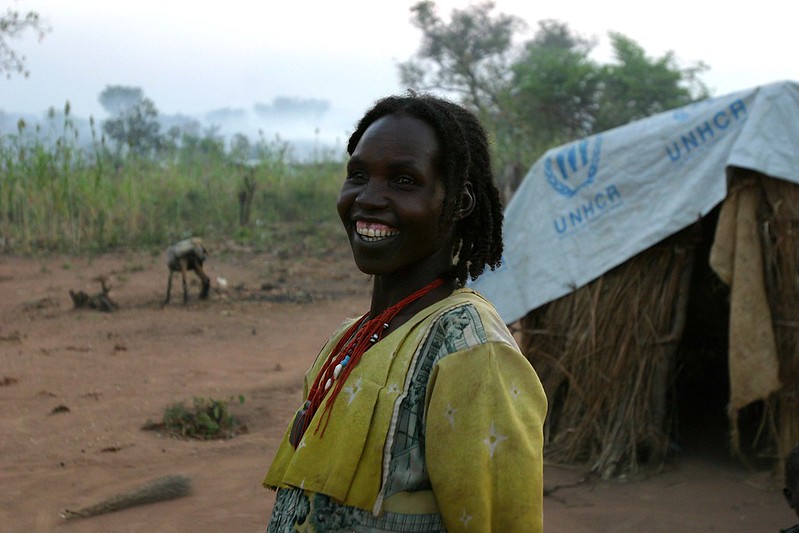Women in Sudan Receive Hygiene Support Amid Crisis
 From producing their reusable pads to receiving hygiene kits, women in Sudan are receiving menstrual support as they navigate through this crisis. Nine months into the conflict between the Sudanese Armed Forces (SAF) and the Rapid Support Forces, the Women and Children Development Association and the United Nations (U.N.) Women are working to supply displaced women and children with hygiene kits. Since April 2023, 4.55 million people have been internally displaced in Sudan, including an estimated 1,092,000 women and girls of reproductive age. The ongoing conflict has led to a significant shortage of menstrual products nationwide.
From producing their reusable pads to receiving hygiene kits, women in Sudan are receiving menstrual support as they navigate through this crisis. Nine months into the conflict between the Sudanese Armed Forces (SAF) and the Rapid Support Forces, the Women and Children Development Association and the United Nations (U.N.) Women are working to supply displaced women and children with hygiene kits. Since April 2023, 4.55 million people have been internally displaced in Sudan, including an estimated 1,092,000 women and girls of reproductive age. The ongoing conflict has led to a significant shortage of menstrual products nationwide.
Menstrual Hygiene Amid Crisis
Women and girls in Sudan who have been forced to flee under intense gunfire and threats of sexual violence usually end up without essential dignity kits, including menstrual hygiene products. Evidently, when one is escaping war, everything is left behind, and menstrual products are not considered a priority. While families grapple with challenges securing food and water, inflation has made it difficult for women and girls to afford menstrual products. Additionally, disposable sanitary pads are not widely available in remote and hard-to-reach areas.
According to the Strategic Initiative for Women in the Horn of Africa, “This situation of utter scarcity of menstrual products raises women and girls’ likelihood of developing infections, which are more likely to become life-threatening given the lack of access to clean water and medical services. These risks are even higher in internally displaced persons (IDP) camps.” In their urgent need to address their menstrual needs, women and girls have resorted to using old cloth pieces, posing a risk of infections, mainly when proper hygiene practices are not observed.
Reusable Sanitary Towels Initiative
World Vision launched an initiative to promote reusable sanitary towels to help support adolescent girls through their menstrual cycles. This initiative was first introduced to the Blue Nile State with funding from the USAID-Bureau for Humanitarian Assistance (BHA). Women from six vicinities were then divided into groups to be trained and equipped with start-up kits for making reusable sanitary towels.
Three prototypes were created with different ministries and the United Nations Children’s Fund (UNICEF), utilizing the locally accessible cotton fabric. Two hundred units of each design were produced and given to a hundred girls in four other areas. Subsequently, a user survey was undertaken to gather feedback from the girls, ensuring that their insights were integrated into the final designs to improve acceptance and utilization. Five thousand pieces were produced, which World Vision purchased and distributed to 500 girls.
Now, World Vision has designated these trained women to teach others how to produce quality reusable sanitary towels in South Kordofan, South Darfur and East Darfur to advance the initiative. World Vision facilitated connections between the trained women groups and local suppliers to ensure easy access to raw materials. These women are also earning improved household income through this initiative.
UN Women and USAID Contributions To Menstrual Support
Through their campaign, U.N. Women distributed 1000 hygiene kits to internally displaced women in December 2023. According to USAID, the United Nations Fund for Population Activities (UNFPA) has also reached approximately 161,000 individuals with dignity kits between April 15 and October 29, 2023. Dignity/Hygiene kits usually contain essentials like menstrual pads, bath soap, underwear, detergent powder, sanitary napkins, a flashlight, toothpaste, a toothbrush and a comb. These kits help women and girls maintain proper hygiene and preserve their dignity during times of crisis.
Conclusion
Dignity kits play a crucial role in humanitarian response by addressing the basic needs of individuals in crises, promoting hygiene, providing privacy and supporting the overall well-being of affected populations, especially women and children.
– Noura Dakka
Photo: Flickr
